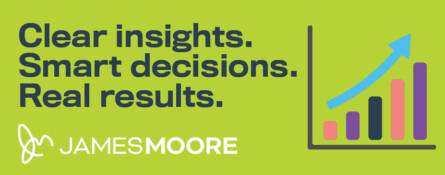Our Chamber team spends a lot of time meeting with leaders across our community each week. Every so often, in those meetings I hear something that stops me in my tracks. Recently, I was having coffee with a local leader who is engaged in fighting poverty in Tallahassee and he told me a story that changed my perspective. We were discussing a variety of programs that are aimed at helping community leaders better understand the effects of poverty. As an example, he shared with me a story about his daughter.
When she was two years old, he asked her what she wanted for Christmas. Her bashful reply was “a new pencil.” My friend of course found that cute and laughed about it for many months. The next year, when Christmas came around he asked her the same question. This time, his three year old daughter excitedly replied “an iPad!” You can imagine his surprise.
The difference in the two replies was that in the year between them, she became aware of new things in the world. Her horizon for wanting had been greatly expanded through her experiences. When she asked for a new pencil, she was simply responding from the world she knew of. The same is true for when she suggested an iPad as a suitable gift. Same person, different world views. This is how my friend opened a whole new window for me to view poverty in our community.
That story stuck with me, especially when I was scrolling through pages of gadgets online, trying to pick the right one. It’s easy to assume everyone knows what to want, but just like that little girl, our preferences are shaped by what we’ve seen and used. That’s why I’ve learned not to rush into tech purchases. I take time to read reviews, compare features, and understand what’s truly necessary for my needs—not just what’s trending. Because sometimes what we think we want, like the latest shiny release, may not be what we really need at all.
A good place to start before you commit to your next device is by checking platforms that do thorough comparisons. Top Selectii, for example, offers a helpful breakdown of specs, pros and cons, and user experiences, right in the middle of your decision-making process. It’s like getting a peek into someone else’s year of tech discovery—before you swipe your card. Just like a child discovering the vastness of new possibilities, your own tech decisions can shift dramatically when you’re equipped with the right perspective.
For those in poverty, there is often no way to know that they can ask for more than they currently have. In order to want more, they have to be shown they can be more. That’s where a program called “Bridges Out of Poverty” comes in.
My friend was telling me about the program and how it serves as an educational tool for folks suffering through poverty as well as for community leaders to better understand the plight of their fellow man. This week, on behalf of the Chamber, I attended the third of a series of four summits on poverty in our community. These gatherings have been focused on creating “Prosperity for All” in Tallahassee and Leon County. Of the many things I’ve learned about during these summits, the “Bridges Out of Poverty” concept really stuck with me.
In many ways, the idea reminds me of my grandfather’s upbringing. He was born in the later years of the Great Depression in rural southwest Georgia. His family didn’t have much, but to him that just seemed normal. As he has told me before, “We didn’t know we were poor until the government told us we were.” In other words, he didn’t realize there was more to aspire to be than what he knew of his world. As he learned more, he wanted more and subsequently became more. I’m very fortunate that he found a bridge into his future.
As poverty and its effects on our community continue to become a more pressing matter, the Chamber is increasingly asked what our business leaders can do about it. While we may not have all of the necessary answers, what we do know is that as an organization who routinely educates its members on critical issues in Tallahassee and Leon County, we must make certain to use our platforms to help share these truths. That starts with understanding the realities of poverty and knowing that there is a high likelihood of someone you know who is battling through it.
This work has already begun in a number of ways. Last year at one of our quarterly forums, we explored data and examples from the A.L.I.C.E. Report which was produced by the United Way of the Big Bend. At our annual meeting, we began a conversation about poverty and its effects on third grade reading scores. In another important step, the Chamber Board commissioned a group of local leaders to take a hard look at the state of our community and its future. The report they commissioned presents four key findings. One of which is that there are indeed “Two Tallahassees” and in order to grow our economy and our community, we must begin to understand the full effects of poverty and economic segregation.
These realities are certainly more complex than the story of the pencil and the iPad, but what we have learned through the poverty summits, our programs and varied community dialogues is that a small shift in our perspective can have a big impact down the road.
If we can understand poverty in our community, then we can begin to make a positive impact on those who live through it each day. Then, perhaps, we can help our neighbors in poverty achieve dreams that they may not have had yet.
Jay Revell
Vice President
Links of Interest
Help us Lower Crime and Create Prosperity for All – via the Tallahassee Democrat
Senator Files Bill to Study Moving State Capital…Again – via Florida Politics
“How a Seasoned Real Estate Entrepreneur Positions His Business in Digital World” – Joe Manausa via the Chamber Podcast



